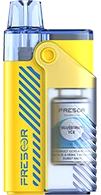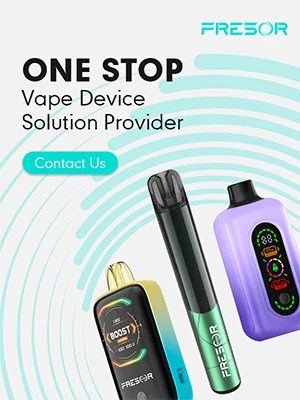Vaping Laws in Tennessee: A Comprehensive Guide

8 April 2025
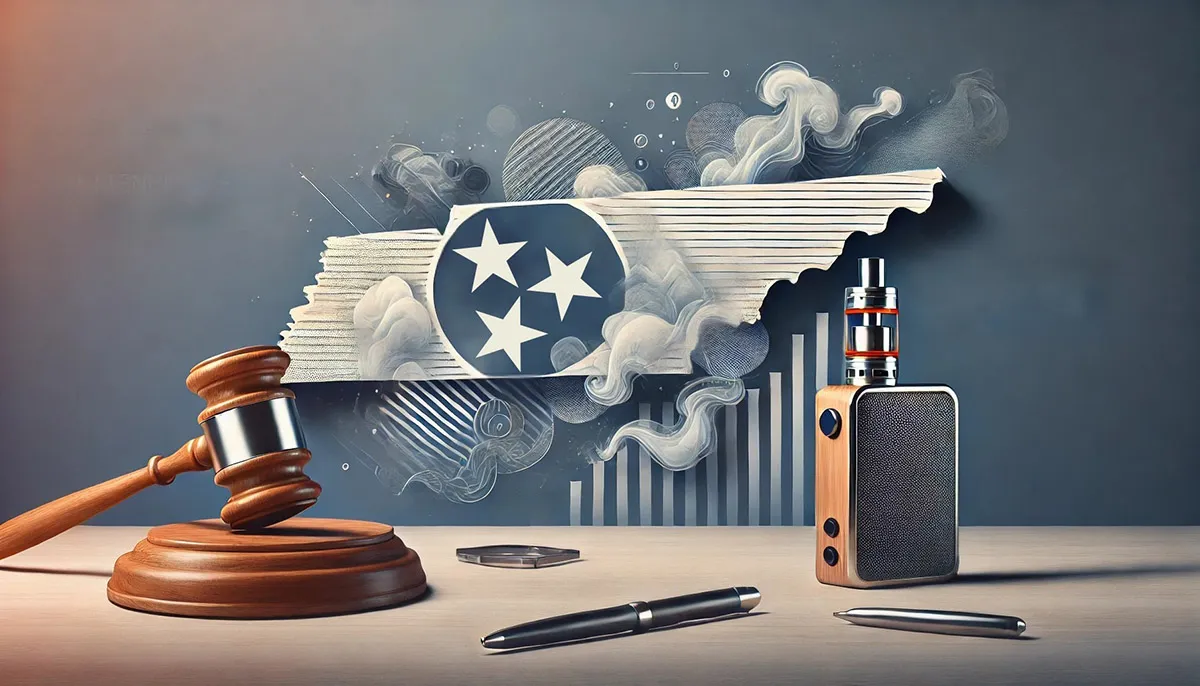
The popularity of vaping has grown significantly in Tennessee, attracting both enthusiastic consumers and aspiring business owners. From urban centers like Nashville to smaller towns, vape culture continues to expand, offering alternatives to traditional smoking. However, as the industry grows, so does the importance of adhering to state-specific regulations.
Understanding Tennessee’s vaping laws is essential for both consumers and sellers to avoid legal complications and operate within the framework of the law. Whether you're a business owner seeking to establish a vape shop or a consumer curious about restrictions, being informed about the legal landscape ensures a smoother experience.
This guide will focus on the licensing requirements for selling vapes in Tennessee, highlighting the essential steps to comply with state regulations. By understanding these laws, sellers can operate confidently, and consumers can make informed decisions about their purchases.
Overview of Vaping Laws in Tennessee
Tennessee has taken a balanced approach to vaping regulations, aiming to protect public health while supporting the growth of the vaping industry. The state’s laws emphasize regulating the sale, distribution, and use of vaping products to ensure safety and compliance.
Historically, Tennessee began addressing vaping laws as the popularity of e-cigarettes surged in the early 2010s. Initial efforts focused on restricting sales to minors, aligning with federal guidelines. Over time, these laws expanded to include licensing requirements for sellers, taxation policies, and restrictions on public vaping.
Key legislative actions include the enactment of laws prohibiting the sale of vaping products to individuals under 21 and imposing penalties for non-compliance. These regulations aim to strike a balance between safeguarding public health and allowing responsible businesses to thrive in the vaping industry.
Age Restrictions and Minimum Purchase Age
In Tennessee, the legal age for purchasing vaping products is 21, aligning with federal regulations under the Tobacco 21 law. This restriction is strictly enforced to prevent access to vaping products by minors. Retailers face significant penalties, including fines and potential suspension of their license, if caught selling to individuals under the legal age.
To ensure compliance, retailers are required to implement strict ID verification processes. In-store sellers must request valid government-issued identification to confirm the buyer's age. Similarly, online sellers must utilize robust age verification systems during the checkout process to prevent underage purchases.
Both online and brick-and-mortar retailers share the responsibility of maintaining these safeguards. By adhering to these requirements, businesses can avoid legal consequences while supporting efforts to reduce underage vaping in Tennessee.
Where Can You Vape and Can Not Vape in Tennessee?
In Tennessee, vaping is prohibited in several public spaces to protect non-smokers and maintain public health standards. These include government buildings, schools, childcare facilities, and public parks. Many healthcare facilities and workplaces have also adopted policies banning vaping on their premises.
Conversely, vaping is allowed on private property, such as homes and privately-owned businesses, unless specific rules are in place. Certain venues may also designate areas where vaping is permitted, typically away from non-smoking individuals.
It’s important to note that local city ordinances and county regulations may impose additional restrictions. For example, some cities have extended vaping bans to include restaurants, bars, or outdoor public gatherings. Staying informed about regional rules ensures compliance and helps avoid fines or penalties. Always check for posted signs and local laws before vaping in public spaces.
Do You Need a License to Sell Vapes in Tennessee?

Yes, retailers and distributors must obtain a license to sell vaping products in Tennessee. State-level licensing is mandatory to regulate the sale of tobacco and nicotine-related products, ensuring businesses comply with health and safety standards. The license covers the legal authorization to sell e-cigarettes, vape juices, and related products. It is necessary to prevent unauthorized sales, promote public health, and ensure the collection of applicable taxes.
To obtain a license, business owners must submit an application to the Tennessee Department of Revenue, which includes providing details about the business location and ownership. Applicants must pay the required fees and comply with tax registration requirements. Once approved, the license must be prominently displayed at the place of business. Annual renewal is typically required to maintain compliance.
In addition to state licensing, some counties or cities in Tennessee may have their own regulations. These can include local business permits or zoning laws that restrict where vape shops can operate. Business owners should check with local authorities to understand specific requirements.
Vape shop owners must also adhere to advertising restrictions, such as avoiding false health claims or marketing to minors, to avoid penalties. Operating without a valid license can result in severe consequences, including fines, confiscation of products, and potential closure of the business. Staying compliant ensures a smooth operation while fostering trust with customers and the community.
Taxation and Vape Product Regulations
Tennessee imposes an excise tax on vaping products to regulate the industry and generate state revenue. This tax applies to e-cigarettes, vape juices, and other related products, significantly impacting pricing. For businesses, these taxes increase operating costs, which are typically passed on to consumers. As a result, vape products in Tennessee may be more expensive compared to states with lower or no excise taxes.
In addition to taxation, Tennessee enforces strict product safety and quality regulations to protect consumers. Vape products must meet federal and state standards for manufacturing, packaging, and distribution. Packaging must be child-resistant to prevent accidental ingestion, especially for products containing nicotine.
Clear labeling is another critical requirement. Vape products must display accurate nicotine content, along with warnings about potential health risks. For instance, labels must include statements such as “This product contains nicotine. Nicotine is an addictive chemical.” Non-compliance with labeling laws can result in fines or removal of products from the market.
These regulations ensure transparency for consumers and maintain safety standards across the industry. Businesses must stay informed and adhere to these rules to operate legally and avoid penalties. Understanding taxation and product regulations helps create a safer and more transparent vaping market in Tennessee.
Vaping and Health Concerns in Tennessee
In Tennessee, public health campaigns actively address the rising concerns surrounding vaping. These initiatives aim to educate residents about the potential risks, especially among youth. Programs like "Tennessee Tobacco Quitline" and local health departments emphasize the importance of informed decision-making about vaping.
From a scientific perspective, vaping is often considered less harmful than smoking traditional cigarettes, as it eliminates many toxic chemicals found in combustible tobacco. However, vaping is not without risks. Studies highlight potential health effects, including lung irritation and nicotine addiction, particularly for younger users.
State-run initiatives focus on spreading awareness through schools, community centers, and media campaigns. These efforts aim to reduce underage vaping and promote healthier alternatives for those looking to quit smoking. By addressing health concerns proactively, Tennessee seeks to foster a more informed and healthier community.
What Sellers Need to Know to Stay Compliant?
To stay compliant with vaping laws in Tennessee, sellers must prioritize staying updated on changing regulations. Regularly reviewing state and federal laws, subscribing to industry updates, and consulting legal experts are essential best practices for vape shop owners.
Training staff on legal compliance is equally important. Employees should understand age verification procedures, product labeling requirements, and advertising restrictions to avoid violations. Certification programs or in-house training can help ensure compliance.
E-commerce sellers must pay close attention to shipping and online sales restrictions. Age verification systems are mandatory to prevent underage purchases, and shipping carriers must comply with legal requirements for vape product transportation. Additionally, sellers must avoid advertising that targets minors or makes unverified health claims.
By adopting these practices, sellers can minimize legal risks and operate responsibly in Tennessee's regulated vape market.
Future of Vaping Laws in Tennessee
The future of vaping laws in Tennessee may bring stricter regulations as public health concerns and government oversight continue to grow. Potential changes could include increased taxation on vaping products, tighter restrictions on marketing practices, or expanded bans on public vaping. Federal regulations and trends in other states may also influence Tennessee’s legislative landscape.
Businesses can prepare for these changes by staying informed through industry groups, legal updates, and proactive engagement with policymakers. Establishing flexible operational strategies, such as robust compliance programs and adaptable marketing plans, can help mitigate the impact of new regulations.
Investing in employee training and legal counsel will also ensure readiness for any shifts in the regulatory environment. By staying proactive, businesses can continue to thrive while adhering to evolving laws in Tennessee's dynamic vaping industry.
Conclusion
Understanding and complying with vaping laws in Tennessee is essential for both business owners and consumers. These laws are designed to promote public health, ensure safe product use, and establish a fair marketplace for vaping products. For business owners, adhering to licensing requirements, tax obligations, and advertising restrictions is crucial to operating legally and avoiding penalties.
As vaping laws continue to evolve, it’s vital for sellers to stay proactive by keeping up with changes in regulations and ensuring proper staff training. Securing the necessary licenses and adhering to local rules will not only protect businesses from legal issues but also build trust with customers.
Consumers also play an important role in this ecosystem. By staying informed about their rights and responsibilities, they can make educated decisions and support businesses that prioritize safety and compliance. Together, businesses and consumers can help foster a responsible vaping culture in Tennessee.
Featured Articles

Can You Vape in a Hotel Room? A Guide for Travelers, Vapers, and Hoteliers
2024-09-19

Vape Legal and Regulatory Weekly Report - September 14, 2024
2024-09-14
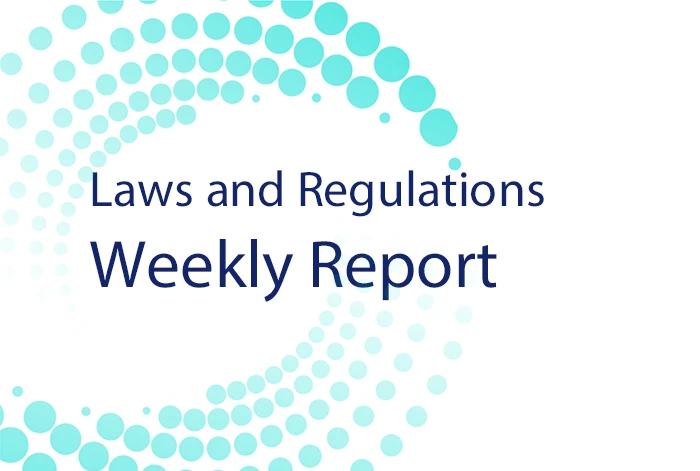
Vape Legal and Regulatory Weekly Report - September 9, 2024
2024-09-09

Vape Legal and Regulatory Weekly Report - September 2, 2024
2024-09-02
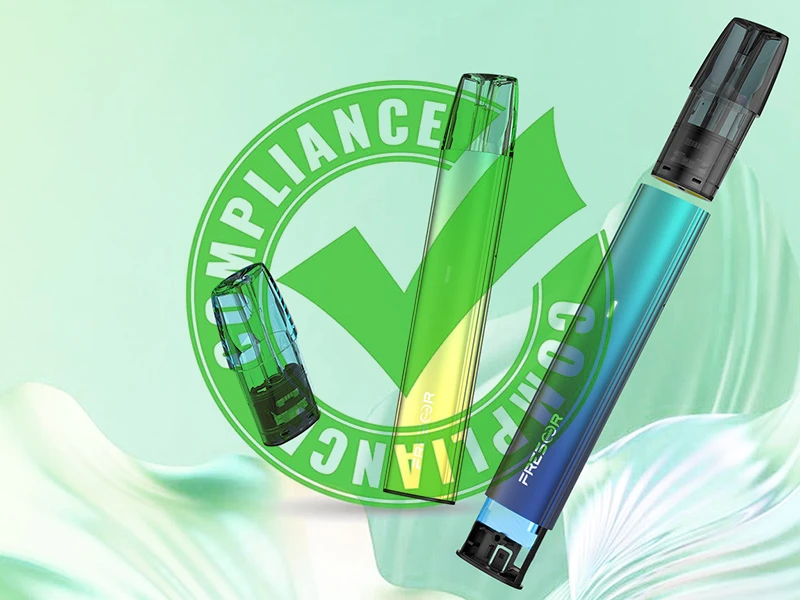
Vaping Laws in Germany: An Update on What You Need to Know
2024-08-12









